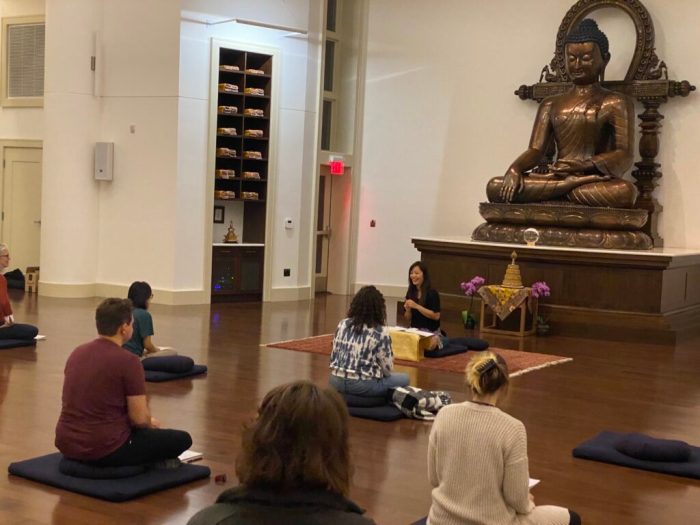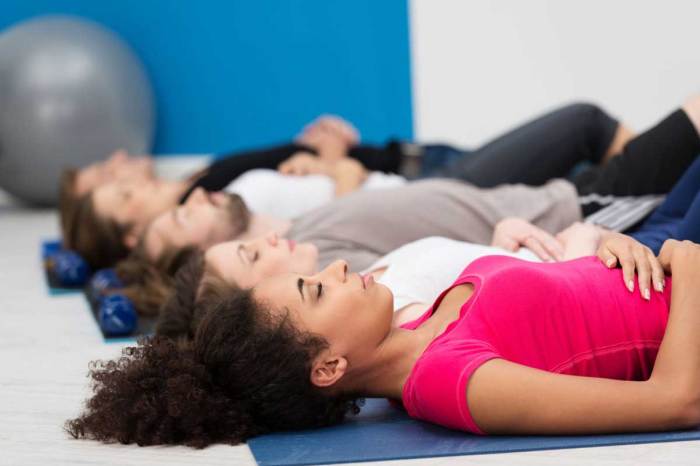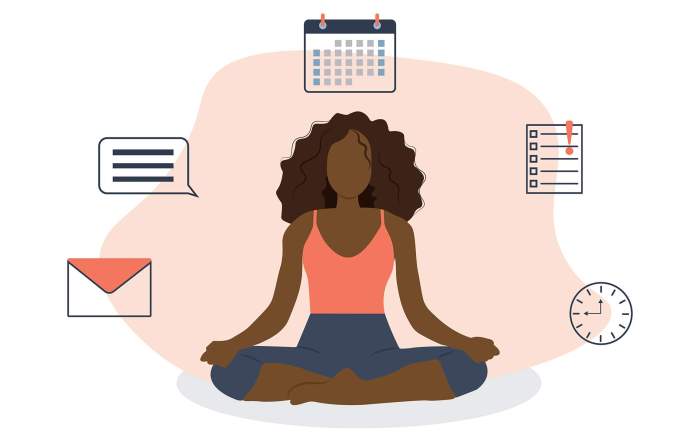In the realm of self-improvement, mastering self-control is key. Dive into the world of 12 Meditation Exercises for Better Self-Control, where discipline meets mindfulness in a harmonious blend.
Unlock the secrets to enhancing self-discipline and impulse management through the power of meditation.
Introduction

Self-control, in the realm of meditation, refers to the ability to regulate one’s thoughts, emotions, and actions with intention and mindfulness. It involves being aware of impulses and consciously choosing how to respond to them, rather than reacting impulsively.Improving self-control through meditation offers a multitude of benefits. It can help individuals better manage stress, reduce anxiety, enhance focus and concentration, and foster a sense of inner peace and balance.
By cultivating self-control through meditation practices, individuals can develop resilience in the face of challenges and make more conscious and positive choices in their daily lives.Incorporating meditation exercises can be highly effective for enhancing self-control because it allows individuals to observe their thoughts and emotions without judgment. This awareness enables them to detach from immediate impulses and choose a more thoughtful and intentional response.
Through regular practice, individuals can strengthen their self-control “muscle” and develop a greater sense of self-awareness and emotional regulation.
Breathing Techniques

Breathing exercises are a powerful tool to help develop self-control. By focusing on our breath, we can calm the mind and improve impulse control in various situations.
Deep Breathing for Self-Control
Deep breathing involves taking slow, deep breaths from the diaphragm, rather than shallow breaths from the chest. This technique can help activate the body’s relaxation response, calming the mind and reducing stress levels. To practice deep breathing for self-control, follow these steps:
- Sit or lie down in a comfortable position.
- Place one hand on your chest and the other on your abdomen.
- Inhale deeply through your nose, feeling your abdomen rise as you fill your lungs with air.
- Exhale slowly through your mouth, emptying your lungs and feeling your abdomen fall.
- Repeat this process for several minutes, focusing on the sensation of your breath.
Remember to breathe deeply and slowly, allowing your body to relax and your mind to become more focused.
Mindfulness Meditation

Mindfulness is the practice of being fully present and aware of one’s thoughts, emotions, and sensations in the present moment without judgment. It involves paying attention to the present moment in a non-reactive way.Mindfulness is closely connected to self-control because it allows individuals to observe their impulses and reactions without automatically acting on them. By cultivating mindfulness, individuals can develop the ability to pause and make conscious choices instead of being controlled by impulsive reactions.
Increased Awareness of Impulses
Practicing mindfulness meditation can increase awareness of impulses by bringing attention to the present moment. This heightened awareness allows individuals to notice the arising of impulses, whether it be cravings, emotions, or habitual reactions. By acknowledging these impulses without judgment, individuals can choose how to respond rather than react impulsively.
- Body Scan Meditation: This practice involves systematically scanning the body from head to toe, bringing awareness to physical sensations and any impulses that may arise.
- Observing Thoughts Meditation: By observing thoughts as they come and go without getting caught up in them, individuals can develop a greater understanding of their impulses and reactions.
- Sensory Awareness Meditation: Focusing on the senses, such as sight, sound, touch, taste, and smell, can help individuals stay present and aware of impulses without being carried away by them.
Visualization Practices: 12 Meditation Exercises For Better Self-Control
Visualization techniques are powerful tools that can help strengthen self-control by creating a mental image of the desired outcome. By visualizing success and envisioning oneself achieving goals, individuals can better focus their minds and increase motivation to stay on track towards self-discipline.
Guided Visualization Exercise for Enhancing Self-Discipline
- Find a quiet and comfortable place to sit or lie down.
- Close your eyes and take a few deep breaths to relax your body and mind.
- Imagine yourself in a situation where you successfully demonstrate self-discipline.
- Visualize the specific actions you take and how you feel in that moment.
- Focus on the positive emotions and sense of accomplishment that come with practicing self-control.
- Stay in this visualization for a few minutes, soaking in the feelings of empowerment and self-mastery.
- When you are ready, slowly open your eyes and bring this sense of determination into your daily activities.
Importance of Consistency in Practicing Visualization for Better Self-Control
Consistency is key when it comes to practicing visualization for better self-control. Just like any skill, the more you practice, the more effective it becomes. By incorporating visualization exercises into your daily routine, you can reinforce positive behaviors and beliefs, making it easier to resist temptations and stay focused on your goals. Regular practice helps to rewire the brain and create new pathways that support self-discipline, leading to long-lasting changes in behavior and mindset.
Body Scan Meditation

Body scan meditation is a mindfulness practice that involves focusing on each part of the body sequentially, bringing awareness to any sensations, tension, or discomfort present. This technique helps individuals develop a deeper connection with their physical bodies, promoting relaxation, stress reduction, and improved self-control.
Step-by-Step Guide to Body Scan Meditation, 12 Meditation Exercises for Better Self-Control
- Find a comfortable and quiet place to sit or lie down.
- Close your eyes and bring your attention to your breath, taking a few deep breaths to center yourself.
- Start scanning your body from the top of your head, slowly moving down to your toes, paying attention to each body part.
- Notice any sensations without judgment, whether it’s tension, warmth, tingling, or relaxation.
- If you encounter areas of tension or discomfort, breathe into those areas and imagine releasing the tension with each exhale.
- Continue scanning your entire body, bringing awareness to each part and allowing any tension to melt away.
- After completing the body scan, take a few moments to bask in the sense of relaxation and connection with your body.
Body Awareness for Managing Impulses
Body awareness cultivated through body scan meditation can play a crucial role in managing impulses and improving self-regulation. By tuning into bodily sensations, individuals can better recognize the physical manifestations of stress, anxiety, or other emotions that may trigger impulsive behaviors. This heightened awareness allows for a pause between the impulse and the action, providing an opportunity to choose a more intentional response.
Through regular practice of body scan meditation, individuals can strengthen their mind-body connection, leading to greater self-control and emotional regulation in various situations.
Closure

Embark on a journey of self-discovery and empowerment with the transformative practices of meditation. Harness the tools provided by the 12 Meditation Exercises for Better Self-Control to cultivate a balanced and focused mind.